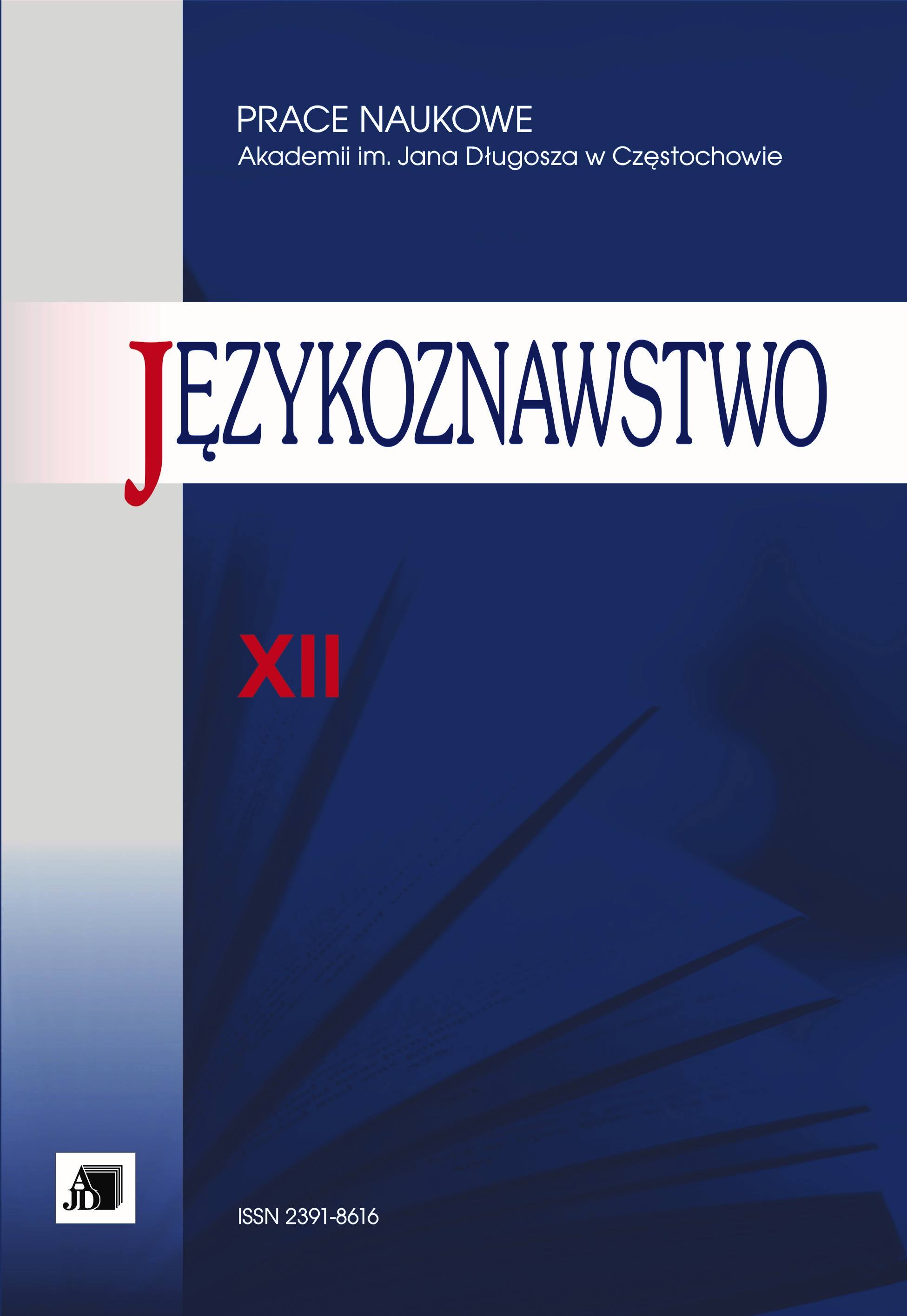Назви на позначення осіб, зайнятих педагогічною діяльністю, в українській мові хvі–хvііі ст.
Names to Denote Individuals, Who Are Involved in Pedagogical Activity, in the Ukrainian Language of 16th–18th Centuries
Author(s): Oksana ZelіnsʹkaSubject(s): Theoretical Linguistics, Applied Linguistics
Published by: Uniwersytet Jana Długosza w Częstochowie
Keywords: Ukrainian language of the 16th–18th centuries ; pedagogical terminology ; borrowed vocabulary ; development of semantics
Summary/Abstract: A thematic group to denote people who professionally dealt with teaching and education was formed in a lexical system of the old Ukrainian language. It was done through the development of a special meaning in the existing words (teacher, lector) and through borrowing of foreign vocabulary during the studied period (professor, master, educator, dydaskal, bakaliar). This thematic group was developed due to analytical nominative units, formed on the basis of one-word denominations. The names expressed by phrases showed narrower specialization of an educator and they became specific qualifying names of the individuals who taught in educational institutions. In 16th–18th cc., special denominations of higher school teachers were not used, which was due to the uniformity of educational institutions and the availability of lower, middle and higher classes. Some lexemes to denote teachers grew out of use. Names teacher, bachelor, master, professor, educator joined a terminology system of pedagogics, and they are in use up till now. The vocabulary of the studied thematic group proves the existence of succession between old and new literary languages.
Journal: Prace Naukowe Akademii im. Jana Długosza w Częstochowie. Językoznawstwo
- Issue Year: 2017
- Issue No: XIII
- Page Range: 151-169
- Page Count: 19
- Language: Ukrainian

